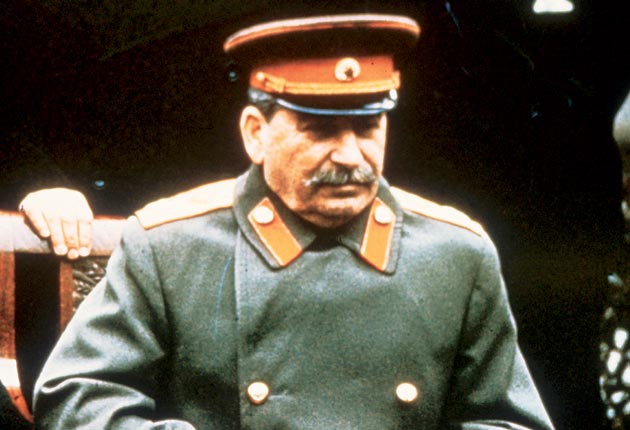How GCHQ kept tabs on Soviet vodka supplies
The lives of ordinary people under Stalin are revealed as Britain's spying secrets are finally made public

Thanks to the latest technology and some clandestine chicanery, GCHQ is renowned for its ability to listen to the conversations of the leaders of Britain's enemies and, occasionally, its friends. Less known is the shadowy agency's unblemished record in gaining information on the average duration of a Soviet tyre and plans for celebrating Stalin's 70th birthday.
Thousands of pages of intelligence intercepts from the early days of the Cold War were made public yesterday, showing how British intelligence not only tapped into communications from deep inside the Kremlin but also built up a vast bank of data dealing with the minutiae of life in the Soviet Union as Britain's wartime ally rapidly became the "Red Menace".
The documents, released by the National Archives in Kew, west London, reveal how Britain struck a top secret deal with the United States in 1946 to formalise the sharing of secret intelligence between the two countries which had developed during the Second World War. It helped cement the "special relationship" .
The result was a wholesale effort by the Government Communications Headquarters, which moved to Cheltenham in 1951, to tap phone lines, bug offices and electronically eavesdrop on conversations to plug a gap in Britain's understanding of life behind the Iron Curtain.
From a ban on "pseudo and inartistic" folk songs in the furthest eastern provinces of Russia to an exhortation by Moscow to resolve a vodka shortage in Dagestan, a comprehensive trawl of conversations across Soviet government was laid before British and American intelligence chiefs to try to gauge the stresses and strains in Russian society.
Dr Ed Hampshire, the head of specialist records at the National Archives, said: "This material was provided to the heads of intelligence to build up military, political, economic and social intelligence. There was a need immediately after the war to change intelligence priorities and develop a better understanding of the Soviet threat."
A typical intercept was the revelation in 1947 that two Soviet scientists, named as professors Klyueva and Roskin, had been arrested by the KGB for discussing their findings in cancer research with their American counterparts. GCHQ diligently noted a resolution by the Communist youth wing condemning the "anti-patriotic" actions of the academics and vowing to "wage ceaselessly a merciless fight against all signs of cringing and servility to foreign ways of life and survivals of capitalism in the mentality of young people".
The files, which amount to 3,000 separate reports between 1946 and 1948, each headed with the instruction "Top Secret: to be kept under lock and key never to be removed from the office", show that GCHQ penetrated to the highest levels of the Soviet system.
Personal messages to Stalin were intercepted along with details of plans by the head of the Russian Orthodox Church to celebrate the dictator's 70th birthday with "solemn prayers for the preservation and long-life of our State and its leader".
But it was the nitty gritty of life in the Soviet system that particularly fascinated Britain's eavesdroppers – and which should now prove a treasure trove for historians.
Although GCHQ refuses to discuss the methods used to intercept material gathered more than 60 years ago, the agency somehow managed to record conversations between ordinary Russian citizens. One exchange records how a woman told a friend not to sell her fur coat, while another message discusses the average life of a Soviet car tyre – 15,000km.
While Russia and the Ukraine were in the grip of a post-war famine in 1946, Moscow was concerned about the lack of a different sort of sustenance in the Caucasus. Officials complained that "only 30,000" litres of a 170,000-litre vodka consignment had reached Dagestan. Among the more obscure diktats picked up by GCHQ was a requirement from Moscow's Directorate for the Control of Entertainments and Repertory that mine workers in Siberia should stop singing a number of pre-Soviet folk songs on the grounds that they were "inartistic and trivial". The banned ditties included "The Stoneman and the Midges", "My Mother Once Sent Me To Gather White Mushrooms" and "Why Do You Destroy Me, You Foolish Woman?".
Join our commenting forum
Join thought-provoking conversations, follow other Independent readers and see their replies
Comments
Bookmark popover
Removed from bookmarks